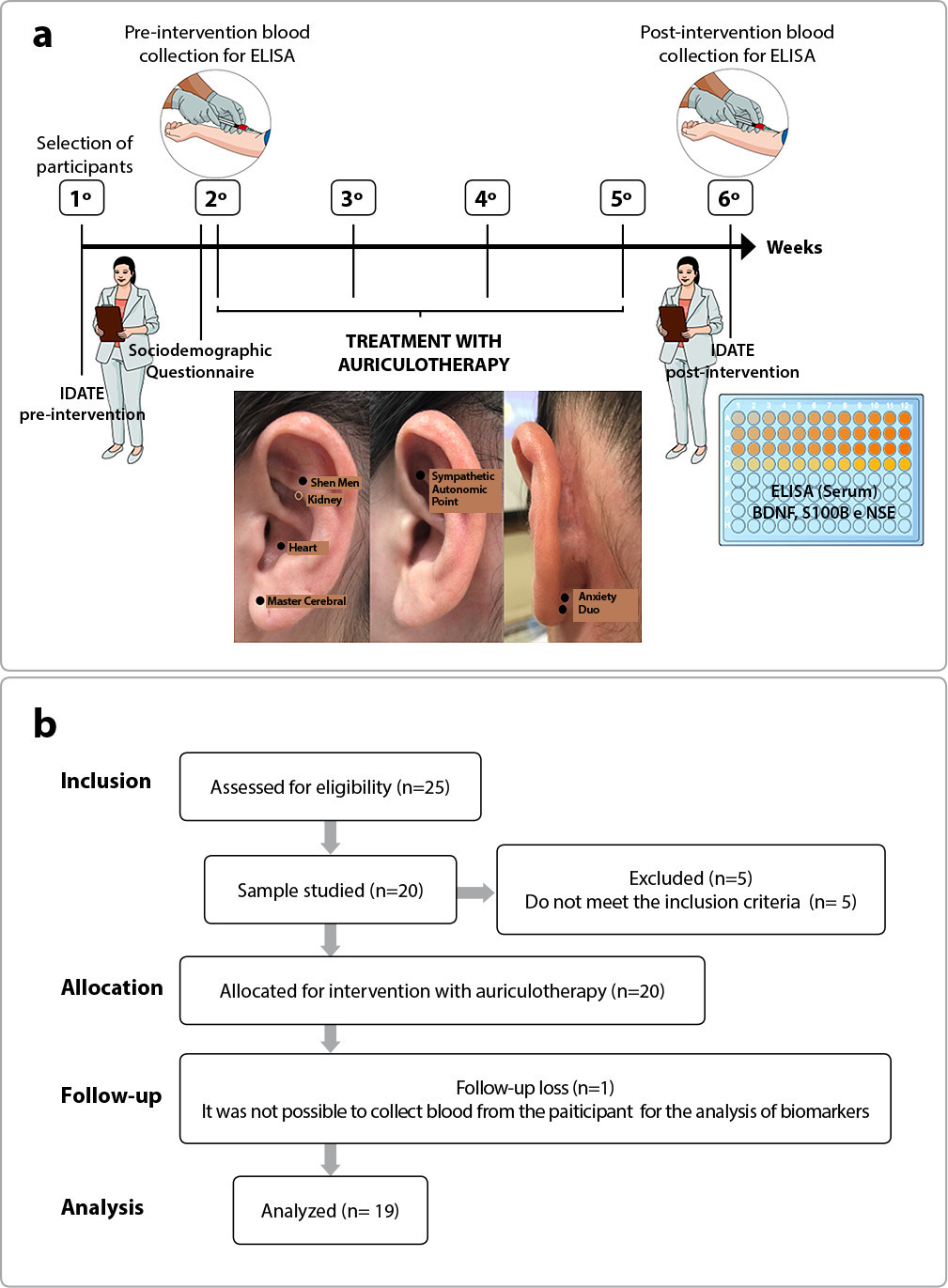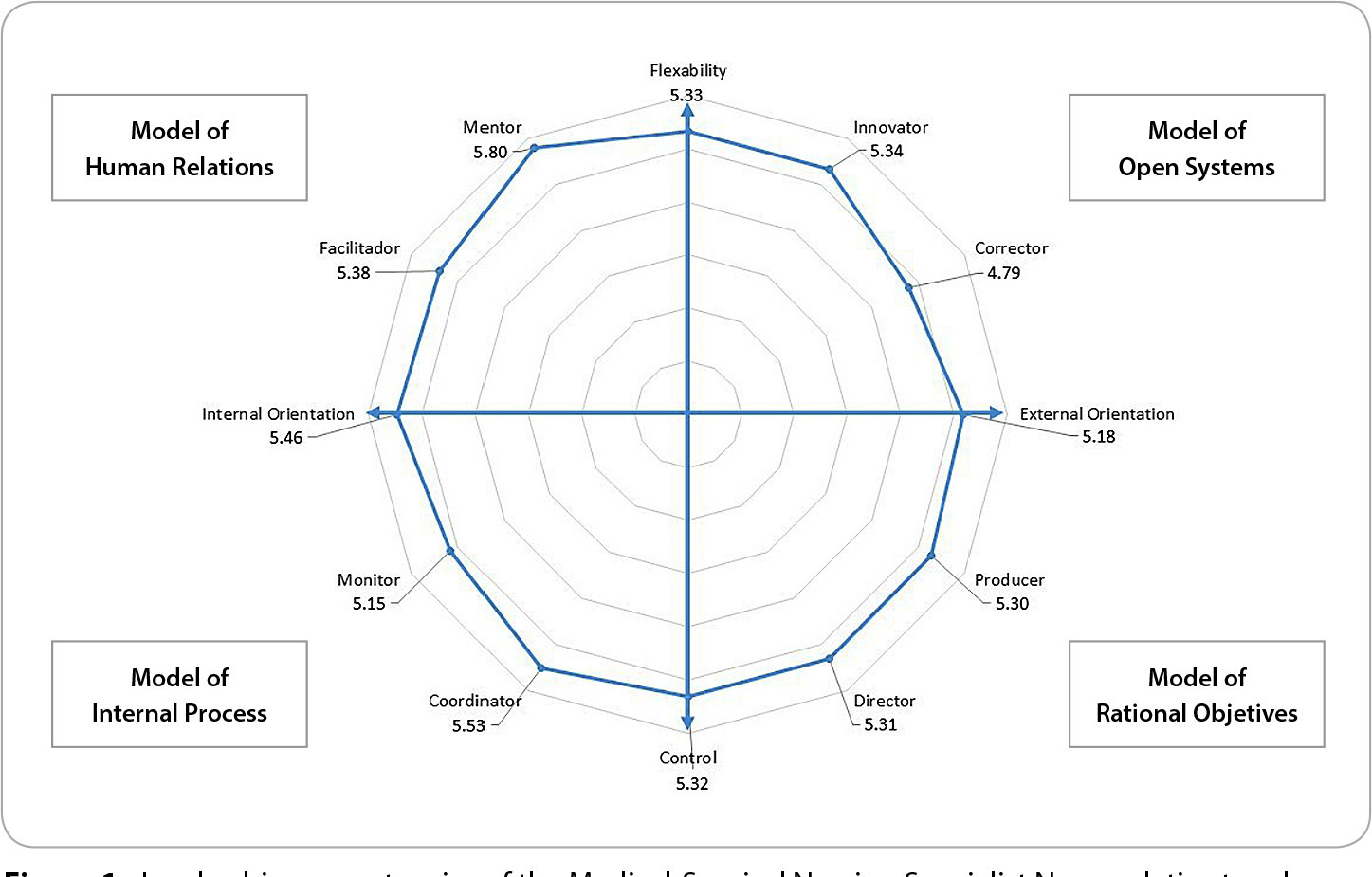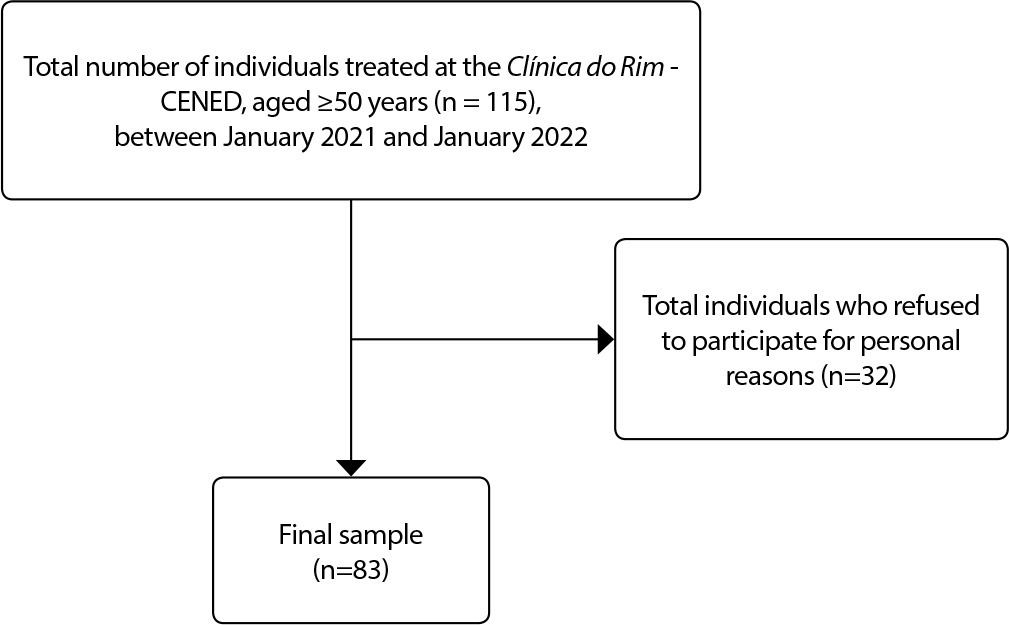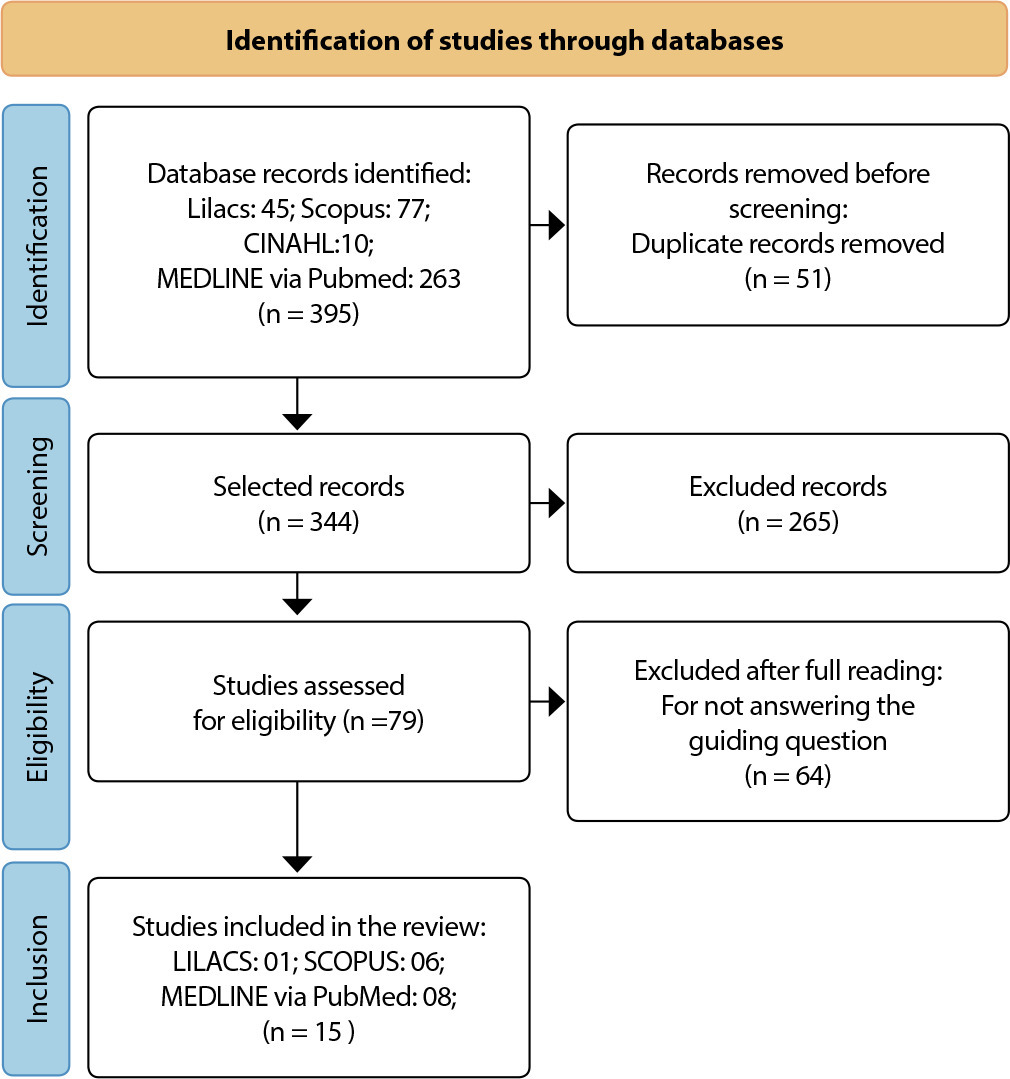-
Maternal Concerns in Home Care for the Premature Newborn: An Integrative Review
Revista Brasileira de Enfermagem. 2023;76(6):e20220769
Abstract
Maternal Concerns in Home Care for the Premature Newborn: An Integrative Review
Revista Brasileira de Enfermagem. 2023;76(6):e20220769
DOI 10.1590/0034-7167-2022-0769
Views0See moreABSTRACT
Objective:
To identify and analyze the scientific literature, both national and international, concerning the primary maternal concerns about caring for premature newborns at home.
Methods:
This integrative review is based on the guiding question: “What scientific publications from 2012 to 2021 address maternal concerns about the care of premature newborns at home?”. Searches were conducted in the electronic databases: Embase, Medline, Web of Science, Lilacs, Scielo, and Cochrane Library.
Results:
A total of 21 articles were identified. The qualitative analysis showed that maternal concerns pertained to breastfeeding, hygiene, sunbathing practices, managing infant colic, identifying signs, symptoms, and clinical changes, temperature control, and the third phase of the kangaroo method.
Conclusions:
Maternal uncertainties underscore the importance of enhancing strategies focused on supporting families and ensuring continued care for neonates at home.

-
TECHNOLOGICAL INNOVATION12-04-2023
Web App for prediction of hospitalisation in Intensive Care Unit by covid-19
Revista Brasileira de Enfermagem. 2023;76(6):e20220740
Abstract
TECHNOLOGICAL INNOVATIONWeb App for prediction of hospitalisation in Intensive Care Unit by covid-19
Revista Brasileira de Enfermagem. 2023;76(6):e20220740
DOI 10.1590/0034-7167-2022-0740
Views0See moreABSTRACT
Objective:
To develop a Web App from a predictive model to estimate the risk of Intensive Care Unit (ICU) admission for patients with covid-19.
Methods:
An applied technological production research was carried out with the development of Streamlit using Python, considering the decision tree model that presented the best performance (AUC 0.668).
Results:
Based on the variables associated with Precision Nursing, Streamlit stratifies patients admitted to clinical units who are most likely to be admitted to the Intensive Care Unit, serving as a decision-making support tool for healthcare professionals.
Final considerations:
The performance of the model may have been influenced by the start of vaccination during the data collection period, however, the Web App via Streamlit proved to be a feasible tool for presenting research results, due to the ease of understanding by nurses and its potential for supporting clinical decision-making.

-
ORIGINAL ARTICLE12-04-2023
Efeitos da auriculoterapia na ansiedade e biomarcadores na Atenção Primária à Saúde: um ensaio clínico
Revista Brasileira de Enfermagem. 2023;76(6):e20220728
Abstract
ORIGINAL ARTICLEEfeitos da auriculoterapia na ansiedade e biomarcadores na Atenção Primária à Saúde: um ensaio clínico
Revista Brasileira de Enfermagem. 2023;76(6):e20220728
DOI 10.1590/0034-7167-2022-0728pt
Views0See moreRESUMEN
Objetivo:
evaluar los efectos de la auriculoterapia sobre la ansiedad y los niveles séricos de factor neurotrófico derivado de cerebro (BDNF), enolasa-específica de neurona (NSE) y proteína fijadora de calcio S100B (S100B) en adultos atendidos en Atención Primaria de Salud.
Métodos:
ensayo clínico piloto preexperimental. Se obtuvo información de 19 pacientes mediante el Inventario de Ansiedad Estado-Rasgo (STAI) y análisis de niveles séricos de BDNF, NSE y S100B.
Resultados:
la puntuación de ansiedad preintervención en el IDATE-Rasgo fue de 52,11±6,691 (CV 12,84%) y la valoración tras la auriculoterapia fue significativamente menor (43,72±8,141; CV 18,62%; P=0,0007). Los niveles de S100B se redujeron significativamente después de la auriculoterapia (de 64,03±72,18 a 54,03±68,53 pg/mL; CV 126,8%; P=0,0023).
Conclusión:
la auriculoterapia redujo efectivamente los niveles de ansiedad. Demostró ser seguro y fácil de aplicar, lo que permitió a las enfermeras realizar esta técnica de forma autónoma. También se evidenció una reducción de S100B, lo que demuestra una posible prevención del daño neuronal.
-
ORIGINAL ARTICLE12-04-2023
Effects of auriculotherapy on anxiety and biomarkers in Primary Health Care: a clinical trial
Revista Brasileira de Enfermagem. 2023;76(6):e20220728
Abstract
ORIGINAL ARTICLEEffects of auriculotherapy on anxiety and biomarkers in Primary Health Care: a clinical trial
Revista Brasileira de Enfermagem. 2023;76(6):e20220728
DOI 10.1590/0034-7167-2022-0728pt
Views0See moreABSTRACT
Objective:
to assess the effects of auriculotherapy on anxiety and brain-derived neurotrophic factor (BDNF), neuron-specific enolase (NSE) and S100 calcium-binding protein B (S100B) serum levels in adults assisted in Primary Health Care.
Methods:
a pre-experimental pilot clinical trial. Information was obtained from 19 patients using the State-Trait Anxiety Inventory (STAI) and analysis of BDNF, NSE and S100B serum levels.
Results:
the pre-intervention anxiety score in the IDATE-Trait was 52.11±6.691 (CV 12.84%) and the assessment after auriculotherapy was significantly lower (43.72±8.141; CV 18.62%; P=0.0007). S100B levels were significantly reduced after auriculotherapy (from 64.03±72.18 to 54.03±68.53 pg/mL; CV 126.8%; P=0.0023).
Conclusion:
auriculotherapy effectively reduced anxiety levels. It proved to be safe and easy to apply, allowing nurses to perform this technique autonomously. A reduction of S100B was also evidenced, demonstrating possible prevention of neuronal damage.

-
ORIGINAL ARTICLE12-04-2023
Leadership Competencies of the Medical-Surgical Nursing Specialist Nurse
Revista Brasileira de Enfermagem. 2023;76(6):e20220721
Abstract
ORIGINAL ARTICLELeadership Competencies of the Medical-Surgical Nursing Specialist Nurse
Revista Brasileira de Enfermagem. 2023;76(6):e20220721
DOI 10.1590/0034-7167-2022-0721
Views0See moreABSTRACT
Objective:
To identify the leadership competencies of Medical-Surgical Nursing Specialist Nurses.
Methods:
A quantitative, descriptive study using the Leadership Competencies Questionnaire. 311 Portuguese Medical-Surgical Nursing Specialist Nurses participated. Data analysis involved descriptive and inferential statistical analysis using the Statistical Package for Social Sciences (SPSS), version 22.0.
Results:
Study participants had an above-average self-perception on the scale (mean = 3.5) in all leadership roles, recognizing their leadership competencies. The leadership competencies of Medical-Surgical Nursing Specialist Nurses are balanced across all roles: Mentor (5.80 ± 1.02); Coordinator (5.53 ± 0.86); Facilitator (5.38 ± 1.04); Innovator (5.34 ± 0.88); Director (5.31 ± 1.10); Producer (5.30 ± 0.98); Monitor (5.15 ± 1.00); Corrector (4.79 ± 1.29)
Conclusions:
Specialized nursing practice enhances nurses’ self-perceived leadership competencies. Nurses see themselves as leaders focused on internal support and facilitation of collective effort and opportunities for skill development.

-
ORIGINAL ARTICLE12-04-2023
Assessment of the components of sarcopenia and quality of life perceived of individuals on hemodialysis
Revista Brasileira de Enfermagem. 2023;76(6):e20220677
Abstract
ORIGINAL ARTICLEAssessment of the components of sarcopenia and quality of life perceived of individuals on hemodialysis
Revista Brasileira de Enfermagem. 2023;76(6):e20220677
DOI 10.1590/0034-7167-2022-0677
Views0See moreABSTRACT
Objectives:
to evaluate the prevalence of sarcopenia in individuals aged 50 years or older on hemodialysis; to verify the association between sarcopenia and sociodemographic, clinical, anthropometric factors, components of sarcopenia and quality of life (QoL); and to correlate the components of sarcopenia with QoL.
Methods:
Participated 83 individuals on hemodialysis. Sarcopenia was established according to the current European consensus. Dynamometry to determine strength, calf circumference (CC) and appendicular skeletal muscle mass index (ASMMI) to obtain muscle mass and gait speed (GS) for physical performance. For QoL used the WHOQOL-bref.
Results:
the prevalence of sarcopenia was 32.6% (CC) and 18.1% (ASMMI). There was no association between sarcopenia and QoL. Both handgrip strength (r=0.25) and GS (r=0.36) showed a correlation with physical domain.
Conclusions:
sarcopenia was expressive, and the aspects of functionality determine the physical impairment in this population.

-
ORIGINAL ARTICLE12-04-2023
Construction and validation of an educational booklet for patients in the postoperative period of cardiac surgery: a methodological study
Revista Brasileira de Enfermagem. 2023;76(6):e20220621
Abstract
ORIGINAL ARTICLEConstruction and validation of an educational booklet for patients in the postoperative period of cardiac surgery: a methodological study
Revista Brasileira de Enfermagem. 2023;76(6):e20220621
DOI 10.1590/0034-7167-2022-0621
Views0See moreABSTRACT
Objective:
to construct and validate an educational booklet for self-care of patients in the postoperative period of cardiac surgery
Methods:
methodological study, including bibliographic survey, construction of the booklet and validation with judges and the target audience. For validation with judges, the Health Educational Content Validation Instrument was used, and with the target audience, an instrument was used with questions related to organization, writing style, appearance and motivation. To analyze the judges’ answers, the content validation index was used
Results:
the booklet was prepared with 14 topics. The content validation index among the eight judges was 1 and the concordance index among the ten patients was above 80%. The final version of the material was made available in printed format
Conclusion:
the educational booklet was developed and validated by judges and the target audience, serving as an educational support tool for self-care of patients in the postoperative period of cardiac surgery.
-
Quality of care in peripheral venous catheterization: A scoping review
Revista Brasileira de Enfermagem. 2023;76(6):e20220578
Abstract
Quality of care in peripheral venous catheterization: A scoping review
Revista Brasileira de Enfermagem. 2023;76(6):e20220578
DOI 10.1590/0034-7167-2022-0578
Views0ABSTRACT
Objective:
To map the current status of parameters and tools to assess quality of care related to peripheral venous catheter use in adults.
Methods:
Scoping review, conducted in 2022 in the MEDLINE, LILACS, CINAHL and SCOPUS databases and with a publication time limit from 2013 to 2022.
Results:
The sample consisted of 15 articles, summarized in the following categories: Indication, documentation and registration, coverage assessment, connection, stabilization and signs and symptoms inherent to the catheter. The use of a complete instrument, with the domains observed in this review, may have a positive impact on a more effective and safe clinical practice.
Conclusions:
The present review mapped the evidence about the insertion and maintenance of peripheral venous catheters that can be improved with training of good practices and the quality of the team, regarding the use of tools, materials and instruments for the evaluation of care.
Keywords:CatheterizationHealth EvaluationPeripheralQuality of Health CareReviewSurveys and QuestionnairesSee more
-
EDITORIAL01-01-2017
Enfermagem em cardiologia: estado da arte e fronteiras do conhecimento
Revista Brasileira de Enfermagem. 2017;70(3):451-452
Abstract
EDITORIALEnfermagem em cardiologia: estado da arte e fronteiras do conhecimento
Revista Brasileira de Enfermagem. 2017;70(3):451-452
DOI 10.1590/0034-7167.2017700301
Views0As doenças cardíacas lideram o grupo das desordens clínicas de maiores taxas de hospitalização e mortalidade, além de apresentarem um progressivo aumento da incidência na população devido ao envelhecimento concomitante ao desenvolvimento das terapias e tecnologias em saúde. Uma estimativa obtida pelo DATASUS() acusa um gasto onerado ao sistema de saúde do país, no ano […]See more -
EDITORIAL01-01-2017
Nursing in cardiology: state of the art and frontiers of knowledge
Revista Brasileira de Enfermagem. 2017;70(3):451-452
Abstract
EDITORIALNursing in cardiology: state of the art and frontiers of knowledge
Revista Brasileira de Enfermagem. 2017;70(3):451-452
DOI 10.1590/0034-7167.2017700301
Views0Heart diseases lead the group of clinical disorders with higher rates of hospitalization and mortality and present a progressive increase in incidence due to population ageing, simultaneously to the development of new health therapies and technology. DATASUS() estimated a cost of nearly 700 million Reais for the country’s health care system in 2015, only for […]See more -
REFLECTION01-01-2017
Nursing care in early childhood: contributions from intersubjective recognition
Revista Brasileira de Enfermagem. 2017;70(2):446-450
Abstract
REFLECTIONNursing care in early childhood: contributions from intersubjective recognition
Revista Brasileira de Enfermagem. 2017;70(2):446-450
DOI 10.1590/0034-7167-2016-0319
Views0See moreABSTRACT
Objective:
to understand the elements composing intersubjective recognition that are relevant for nursing care in early childhood in favor of comprehensive child development.
Method:
reflexive study based on the Honnethian concept of intersubjective recognition in the dimensions of affection, defense of rights, and social esteem.
Results:
nursing knowledge and practices, permeated by the intersubjective recognition in the mentioned dimensions, contribute to the dynamism of interpersonal relations, the production of co-responsibility, and shared construction of health care in early childhood, with benefits to comprehensive development.
Conclusion:
a successful coordination of the three intersubjective dimensions enables the expansion of the understanding on childhood and nursing care in child health in the field of human development promotion, covering affection, defense of rights, and social esteem in the established relationships with future positive individual and social possibilities.
-
REFLECTION01-01-2017
Hand hygiene as a caring practice: a reflection on professional responsibility
Revista Brasileira de Enfermagem. 2017;70(2):442-445
Abstract
REFLECTIONHand hygiene as a caring practice: a reflection on professional responsibility
Revista Brasileira de Enfermagem. 2017;70(2):442-445
DOI 10.1590/0034-7167-2016-0189
Views0ABSTRACT
Hand hygiene represents a fundamental nursing care practice and is traditionally considered the most important and effective measure in the prevention and control of healthcare-related infections. However, studies indicate that adherence to the procedure is unsatisfactory throughout the world, and show low adherence rates. In a context in which patient safety stands out as a priority, this text submits refl ections about professional responsibility when not adhering to hand hygiene practices, and ethical aspects related to this conduct.
Keywords:Cross InfectionsHand hygieneKnowledge, Health Knowledge, Attitudes, PracticeNursing CarePatient SafetySee more -
REFLECTION01-01-2017
Brazilian method for the development terminological subsets of ICNP®: limits and potentialities
Revista Brasileira de Enfermagem. 2017;70(2):430-435
Abstract
REFLECTIONBrazilian method for the development terminological subsets of ICNP®: limits and potentialities
Revista Brasileira de Enfermagem. 2017;70(2):430-435
DOI 10.1590/0034-7167-2016-0308
Views1See moreABSTRACT
Reflection on the limits and potentialities of a Brazilian method for the development of terminological subsets of ICNP®,(International Classification for Nursing Practice) based on the correlation between this method and international methods. This issue has been debated by the International Council of Nurses (ICN). Although the council propose a guideline for elaboration, they encourage and reinforce the use of various perspectives and processes in the development of subsets. Brazilian Nursing needs to propose a method and deepen reflections on the use of terminological subsets of ICNP® in the reality of the country. The development of subsets in Brazil is considered incipient and the proposed method needs to be used and deepened in order to spread the use of terminology through the application of subsets.
-
EXPERIENCE REPORT01-01-2017
Focus group on qualitative research: experience report
Revista Brasileira de Enfermagem. 2017;70(2):424-429
Abstract
EXPERIENCE REPORTFocus group on qualitative research: experience report
Revista Brasileira de Enfermagem. 2017;70(2):424-429
DOI 10.1590/0034-7167-2016-0091
Views0See moreABSTRACT
Objective:
to report the experience of applying the focus group technique for production of data in qualitative research.
Method:
four group sessions were held from May to June 2015, with the participation of professionals from the public sector of PHC and from specialized service.
Results:
the way focus group was developed is described in steps: planning, recruitment, ambience, group sessions, and evaluation.
Conclusion:
we highlight that the focus group, as a technique to produce data in collective space, can contribute not only to the construction of knowledge in Nursing, but also to the research approach with the assistance practice.

-
REVIEW01-01-2017
Patient with stroke: hospital discharge planning, functionality and quality of life
Revista Brasileira de Enfermagem. 2017;70(2):415-423
Abstract
REVIEWPatient with stroke: hospital discharge planning, functionality and quality of life
Revista Brasileira de Enfermagem. 2017;70(2):415-423
DOI 10.1590/0034-7167-2016-0166
Views0See moreABSTRACT
Objective:
analyze the strategies of hospital discharge planning for these patients, increasing the knowledge related to hospitalhome transition, discharge planning processes and the main impact on the quality of life and functionality.
Method:
integrative literature review using the PICOD criteria, with database research.
Results:
19 articles were obtained, using several approaches and contexts. For quality of life, the factors related to the patient satisfaction with care and the psychoemotional aspects linked with functionality are the most significant.
Conclusion:
during the hospitalization period, a careful hospital discharge planning and comprehensive care to patients and caregivers – in particular the functional and psychoemotional aspects – tend to have an impact on the quality of life of patients.

-
ORIGINAL ARTICLE12-13-2024
Nurses’ experience regarding patient safety in mobile pre-hospital care
Revista Brasileira de Enfermagem. 2024;77(5):e20230529
Abstract
ORIGINAL ARTICLENurses’ experience regarding patient safety in mobile pre-hospital care
Revista Brasileira de Enfermagem. 2024;77(5):e20230529
DOI 10.1590/0034-7167-2023-0529
Views0See moreABSTRACT
Objectives:
to understand nurses’ experience regarding patient safety in mobile pre-hospital care.
Method:
a qualitative, exploratory and descriptive study, conducted with nurses active in mobile pre-hospital care services. Semi-structured interviews were conducted, audio-graved and submitted to Bardin’s content analysis.
Results:
from four thematic categories established, nurses reported the care and management skills necessary to work in this service. They demonstrated a commitment to ensuring safe care for patients, staff and spectators. They highlighted the actions taken to prevent and mitigate incidents. However, they based their experiences on practice protocols and individual actions, expressing the need to improve knowledge about patient safety.
Final Considerations:
mobile pre-hospital care nurses’ experience in relation to patient safety was limited, suggesting the need for training on the subject, alignment of work processes and implementation of strategies, aiming to guarantee safe care.
-
ORIGINAL ARTICLE12-13-2024
Repercussions of the pandemic on tuberculosis control actions from the perspective of health professionals
Revista Brasileira de Enfermagem. 2024;77(5):e20230477
Abstract
ORIGINAL ARTICLERepercussions of the pandemic on tuberculosis control actions from the perspective of health professionals
Revista Brasileira de Enfermagem. 2024;77(5):e20230477
DOI 10.1590/0034-7167-2023-0477
Views0See moreABSTRACT
Objectives:
to analyze the repercussions of the COVID-19 pandemic on tuberculosis control actions from the perspective of primary health care professionals.
Methods:
this descriptive study with a qualitative approach was conducted from November 2022 to April 2023, using semi-structured interviews with 11 key informant professionals from primary health care units in a Brazilian capital. Data were organized using Atlas.ti 22.0 software and subjected to thematic-categorical content analysis.
Results:
the pandemic scenario caused alterations in the work process, necessitating abrupt adaptations, and led to detrimental impacts on the health of professionals and tuberculosis control actions, which were reduced or discontinued.
Final Considerations:
there was evident unpreparedness and a lack of resources from various governmental levels and health services to handle the public health emergency situation without severe harm to the provision of essential services.
-
Training of Brazilian indigenous nurses: between human rights, valuing diversity and inclusion
Revista Brasileira de Enfermagem. 2024;77(5):e20230430
Abstract
Training of Brazilian indigenous nurses: between human rights, valuing diversity and inclusion
Revista Brasileira de Enfermagem. 2024;77(5):e20230430
DOI 10.1590/0034-7167-2023-0430
Views0See moreABSTRACT
Objectives:
to analyze the possibilities and potential of training indigenous nurses, given the Brazilian Health System (SUS), understanding the relationships between education and health.
Methods:
theoretical-reflective study, based on scientific literature, aligned with the experience, critical thinking of its authors and the Sustainable Development Goals in Brazil.
Results:
this text articulates three axes: Potential for including indigenous students in nursing training; Paths to achieving equity through inclusion and retention policies for indigenous students at different levels; and Implications of this for the SUS and global health.
Final Considerations:
indigenous students, beneficiaries of affirmative actions, face challenges of inclusion and retention in public universities that directly impact their academic training. Added to this are the difficulties identified in basic education, professor training and implementation of permanence policies, with consequences for services and training at other levels.
-
ORIGINAL ARTICLE12-13-2024
Interobserver agreement in Reception and Risk Stratification in Obstetrics implementation
Revista Brasileira de Enfermagem. 2024;77(5):e20230361
Abstract
ORIGINAL ARTICLEInterobserver agreement in Reception and Risk Stratification in Obstetrics implementation
Revista Brasileira de Enfermagem. 2024;77(5):e20230361
DOI 10.1590/0034-7167-2023-0361
Views0See moreABSTRACT
Objectives:
to analyze interobserver agreement in the Reception and Risk Stratification in Obstetrics protocol implementation.
Methods:
a cross-sectional study carried out during Reception and Risk Stratification in Obstetrics implementation, conducted in a tertiary hospital in southern Brazil with 891 participants in January 2020. Descriptive and interobserver agreement analysis was carried out using the Kappa coefficient in the risk stratification assigned by the triage nurse and reviewed by the researcher.
Results:
around half of the calls (55.6%) were stratified as not very urgent (green), followed by urgent (yellow) (31.8%), very urgent (orange) (9.3%), not urgent (blue) (3.4%) and no emerging stratification (red). Agreement analysis of revised stratification found Kappa values of 0.20 (blue), 0.54 (green), 0.77 (yellow) and 0.80 (orange).
Conclusions:
most appointments were non-urgent. The agreement analysis between the revised and assigned risk stratification revealed greater interobserver agreement as the priority level increased.
-
ORIGINAL ARTICLE12-13-2024
Adaptation and implementation of a Nursing care protocol for children in the Amazon Region
Revista Brasileira de Enfermagem. 2024;77(5):e20230245
Abstract
ORIGINAL ARTICLEAdaptation and implementation of a Nursing care protocol for children in the Amazon Region
Revista Brasileira de Enfermagem. 2024;77(5):e20230245
DOI 10.1590/0034-7167-2023-0245
Views0See moreABSTRACT
Objectives:
to describe the process of implementing an adapted protocol for pediatric nursing care in a health unit located in a municipality in the Amazon Region.
Methods:
methodological research conducted in a basic health unit with four family health teams in the state of Rondônia, involving seven nursing professionals. Data collection occurred between October 2020 and April 2022, following the research phases: situational diagnosis, exploratory phase, protocol definition, implementation, and evaluation.
Results:
the outcome was the adaptation and implementation of a nursing care protocol for children.
Final Considerations:
the adaptation and implementation process can be an effective approach to improving care, strengthening nursing as a profession with a solid foundation in scientific and clinical evidence. This facilitates early problem identification and appropriate guidance, leading to better health outcomes for children.
-
ORIGINAL ARTICLE12-13-2024
Nurses’ experiences in caring for people with mental health problems hospitalized due to clinical comorbidities
Revista Brasileira de Enfermagem. 2024;77(5):e20230136
Abstract
ORIGINAL ARTICLENurses’ experiences in caring for people with mental health problems hospitalized due to clinical comorbidities
Revista Brasileira de Enfermagem. 2024;77(5):e20230136
DOI 10.1590/0034-7167-2023-0136
Views0See moreABSTRACT
Objectives:
to understand nurses’ experiences in caring for people with mental health problems hospitalized due to clinical comorbidities in non-psychiatric Inpatient Units.
Methods:
qualitative study, guided by Alfred Schutz’s social phenomenology. Sixteen phenomenological interviews were conducted. The content was analyzed and discussed based on the literature, through the composition of three categories of analysis.
Results:
three categories emerged in the study: Challenges in care faced by nurses; Fragmented care action; and Ideal care. The disarticulation of the clinic was revealed, as described by nurses, showing care as an action far removed from the comprehensiveness of a person. Nurses’ performance is guided predominantly by biomedical reference, disregarding appreciation of subjectivity.
Final Considerations:
it was observed that nurses attribute the responsibility for patient care to factors external to their life-world, when, in fact, these aspects should be components that help them in comprehensive care construction.
-
REVIEW11-29-2024
Assessment of knowledge in oncology about care for transgender people: a scoping review
Revista Brasileira de Enfermagem. 2024;77:e20230532
Abstract
REVIEWAssessment of knowledge in oncology about care for transgender people: a scoping review
Revista Brasileira de Enfermagem. 2024;77:e20230532
DOI 10.1590/0034-7167-2023-0532
Views0ABSTRACT
Objective:
to identify evidence available in the literature on instruments and methodologies used to assess healthcare professionals’ knowledge about cancer care for the transgender population.
Methods:
a scoping review was conducted in seven databases, including studies that answered the question: what is the healthcare professionals’ level of knowledge about cancer care for the transgender population?
Results:
forty-one articles were selected that dealt specifically with healthcare professionals’knowledge in relation to care for the LGBTQIAPN+ population, especially the transgender population. Eighteen studies assessed patients’ perceptions of professionals’knowledge, whereas other studies used their own assessment tools, considering the global context of LGBTQIAPN+ health.
Conclusions:
there is no tested and validated instrument that assesses the knowledge about the transgender population’s oncological health, highlighting the need to construct and validate an instrument focused on this population’s needs.
Keywords:Health Services for Transgender PeopleNeoplasmsOncologyProfessional TrainingTransgender PeopleSee more
Search
Search in:
Nuvem de Tags
Aged (144) Atenção Primária à Saúde (239) COVID-19 (104) Cuidados de Enfermagem (269) Educação em Enfermagem (151) Educação em Saúde (139) Enfermagem (930) Estudos de Validação (131) Health Education (144) Idoso (208) Mental Health (149) Nursing (987) Nursing Care (306) Patient Safety (151) Primary Health Care (284) Qualidade de Vida (104) Quality of Life (106) Saúde Mental (145) Segurança do Paciente (150) Validation Studies (108)



